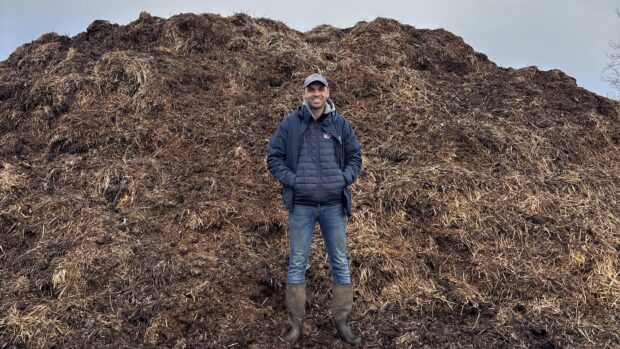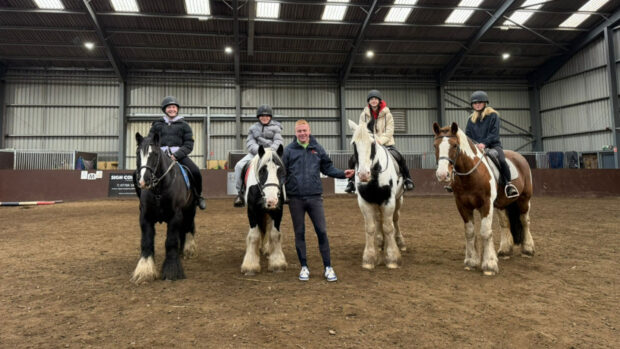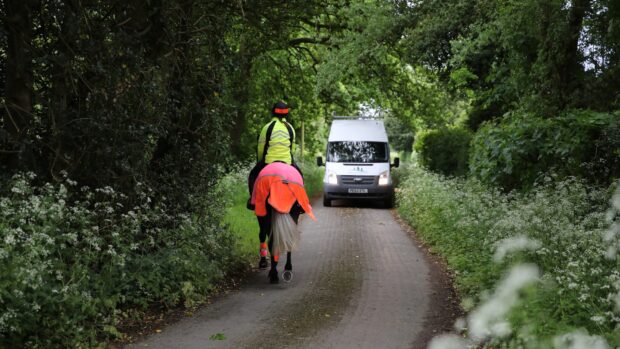The British Horse Society in Scotland has decided to withdraw from the Scottish Equestrian Association — the governing body of equestrian sports in Scotland — to focus on its key aims.
Chairman of the BHS Scottish committee, Annella Cowman, said: “If the society is to continue to maintain its standards and further expand its work, it is essential that we focus on the essentials and do not spend valuable resources on peripheral issues which do not advance our aims.
“We have concluded that membership of SEA has proved a distraction from our primary purposes of raising standards across the board and bringing the benefits of equestrianism to all sectors of the community.”
The SEA is the umbrella body for all equestrian activities in Scotland, as well as the governing body for equestrian sports in the region. Losing the BHSS’s support could potentially deal a massive blow to the association, which risks falling from the top 10 governing bodies in Scotland.
“We appreciate that the loss of BHSS’s 4,000 members, and the 4,600 members of the riding clubs which are affiliated to British Riding Clubs (a part of the BHS), will result in a much smaller SEA. Nevertheless, we cannot justify spending more staff time and members’ money on affairs which do not yield a commensurate benefit,” says Cowan.
However, the honorary secretary for SEA, Muriel Colquhoun MBE thinks that SEA doesn’t stand to lose so many of its members. “I’ve been a BHS members and BHS registered instructor for over 40 years. I’m also a riding club member, and a member of British Eventing, British Show Jumping and British Dressage, and a former Pony Club DC. I’m quite sure that SEA will not lose 4,000 members through the BHS as many of their members are, like myself, duplicate with other organisations.”
That said, Colquhoun says she is “bitterly disappointed that the BHS have taken this stance. As either a BHS member or a BHS registered instructor I was not consulted on this decision.”
The BHSS has announced plans to focus its efforts on the core issues of safety, welfare, training and access education, as well as “the Borders Festival of the Horse, the launch of Tweed Trails and the Horses Welcome pilot project, lobbying on stone mastic asphalt, the BHS ragwort control Bill for Scotland and responding to consultation on transition arrangements for the registration of farriers in the Highlands and Islands.”
In turn, the SEA has declared that, despite the setback, it will continue to develop its wider remit with the support of other member bodies.
Meanwhile, Monday sees the start of British Welly Week, a weeklong celebration of the traditional Hunter welly. Hunter is currently producing wellies in eight different colours to raise funds for charities.
Money from the sale of black wellies will go to the BHS, which is the only equestrian charity involved in the celebration. Half of the black wellies’ charity proceeds will go directly to the society, while the other half will go to a common pot which will then be equally divided among all the charities taking part.
The BHS receives a donation of up to £20 for every pair of black wellies sold and last year it raised more than £13,000 from the initiative.
“So many people have bought Hunter wellies — especially the extremely stylish black ones — that our charitable work for horses and riders has been given a huge boost,” says BHS Chief Executive Graham Cory. “Avoid soggy feet misery in rainy April’s British Welly Week — snap up a pair of black Hunter wellies while you can!”



